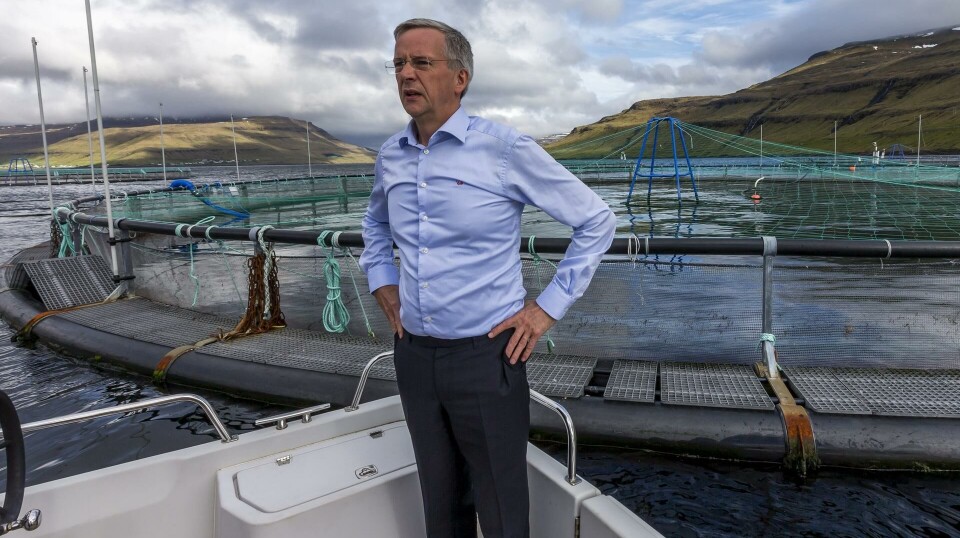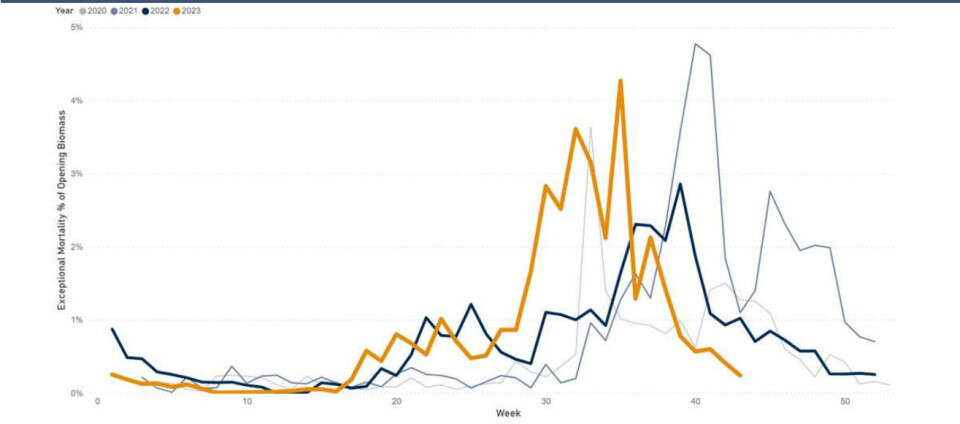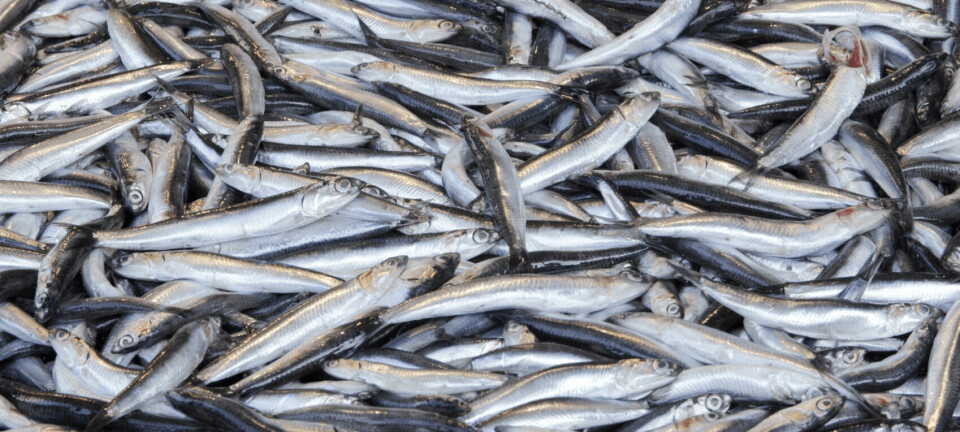
Bakkafrost made reduced operating profit of £31.3m in Q3
Year-on-year earnings fall in wake of increased losses in Scotland
Faroes and Scotland salmon farmer Bakkafrost Group delivered an operating profit of DKK 269 million (£31.3m) in the third quarter of this year, which is lower than the DKK 325m made in Q3 2022, and a profit of DKK 219m (Q3 2022: DKK 249m).
Six of its seven business segments – which now include freshwater operations in the Faroes and Scotland, and a “services” division – made an operating profit. The exception was Farming Scotland, which had incident-based mortality costs of DKK 184m and lost DKK 282m, an increase on the DKK 180m loss made in the same period last year.
Farming Scotland harvested just 4,100 gutted weight tonnes of fish, around half the volume harvested in Q3 2022. Farming Faroes harvested 16,740 gwt (16,850 gwt).
“Our Fishmeal, oil and feed (FOF) segment has delivered yet another strong quarter, but we are not satisfied with the results from the farming segments in this quarter,” said chief executive Regin Jacobsen, who added that jellyfish had been one of the main challenges in Scotland.
Lower growth in Faroes
After years of increasing growth rates in the Faroes, the growth rates in Q3 had been surprisingly low, mainly in fish coming from one specific batch of smolt subjected to poor water quality in the hatchery in August 2021, which was caused by start-up issues.
“The impact on growth unveiled in this quarter demonstrates the importance of having consistent high-quality smolt,” said Jacobsen. “This is something we have worked hard on and succeeded in, however dampening volume output from our hatcheries during the process.”
Bakkafrost stocks smolts with an average weight of 500 grams in the Faroes, and is working towards doing the same in Scotland.
Consistent smolt quality
“Maintaining a consistent smolt quality and size is one of the main priorities, as we now increase the large-smolt production with the completed expansions at the Norðtoftir, Glyvradal and Viðareiði hatcheries in the Faroes and Applecross well under way in Scotland,” said Jacobsen. “We have now also signed a contract for the construction of a large new hatchery in Skálavík in the Faroe Islands.”
During Q3, the FOF segment (Havsbrún) sourced 109,685 tonnes (76,182 tonnes) of raw material. The operational EBITDA margin was 30% (18%), and fish feed sales amounted to 35,903 tonnes (37,805 tonnes).
In Q3 2023, the Freshwater segments in the Faroe Islands and Scotland released a total of 5.8 million (6.6 million) smolts combined:
- Freshwater FO: 3.3 million (4.1 million),
- Freshwater SCT: 2.5 million (2.4 million).
Smolt releases
For the first nine months of 2023, the freshwater segments have released a total of 16.3 (17.0) million smolts:
- Freshwater FO: 9.0 million (9.4 million),
- Freshwater SCT: 7.3 million (7.5 million).
In Q3 2023, the Freshwater FO segment made an operational EBIT per kg released smolt of 34.67 DKK/kg (51.69 DKK/kg), corresponding to 53.04 NOK/kg (69.88 NOK/kg).
The Freshwater SCT segment made an operational EBIT per kg released smolt of 59.79 DKK/kg (42.55 DKK/kg), corresponding to 91.46 NOK/kg (57.52 NOK/kg).
Farming operations
Farming Faroes made an operational EBIT/kg of 6.47 DKK/kg (16.29 DKK/kg), corresponding to 9.90 NOK/kg (22.02 NOK/kg).
Farming Scotland made an operational EBIT/kg of -68.70 DKK/kg (-22.25 DKK/kg), corresponding to -105.09 NOK/kg (-30.07 NOK/kg).
The Services segment made an operational EBIT/kg of 0.99 DKK/kg (0.59 DKK/kg), corresponding to 1.52 NOK/kg (0.80 NOK/kg).
Bakkafrost’s “Sales & Other” segment had a revenue of DKK 2.188 billion (2.298bn) and an operational EBIT margin of 4% (2%). The operational EBIT/kg was 3.73 DKK/kg (1.72 DKK/kg), corresponding to 5.70 NOK/kg (2.33 NOK/kg).
Bakkafrost expects to harvest around 66,000 gwt in the Faroe Islands and 25,000 gwt in Scotland next year, giving a total of around 91,000 gwt.





















































